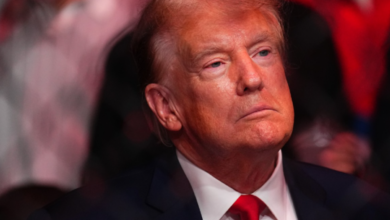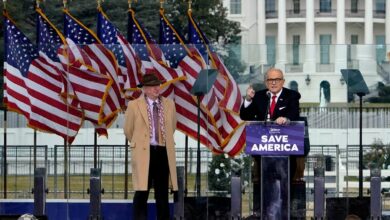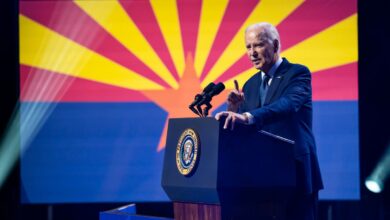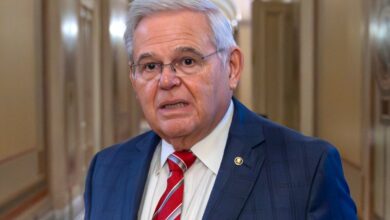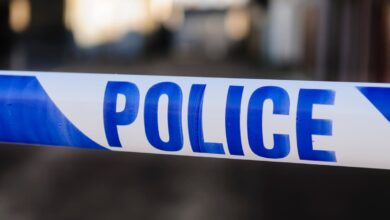Putin raises stakes and puts nuclear forces ‘on alert’ as west steps up response to Russia
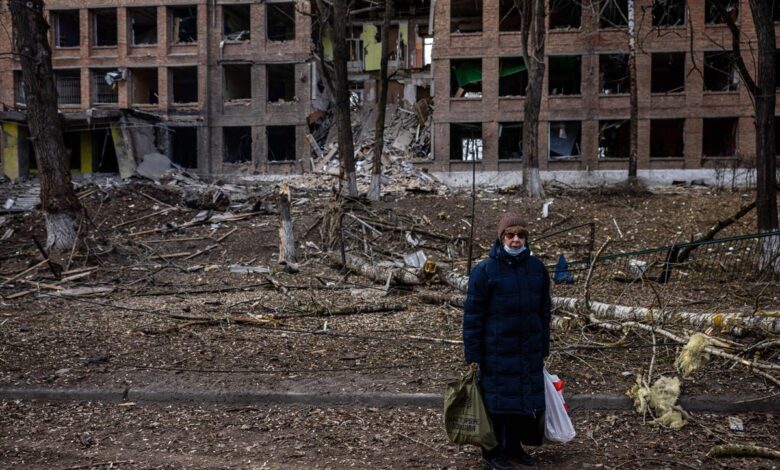
A day of heavy airstrikes, fierce fighting on the ground and fluctuating military fortunes ended with the Ukraine conflict on Sunday reaching new and dangerous levels of risk with Vladimir Putin ordering Russia’s nuclear force to be put on high alert.
The move by the Russian president, which he said was in response to “aggressive statements” by Nato, was immediately condemned by the US, which accused him of “continuing to escalate the war in a manner which is unacceptable”.
The prime minister suggested his actions were more to do with the fact that his forces were meeting with “more resistance than the Kremlin had bargained for” while Nato condemned the “dangerous rhetoric” and accused Mr Putin of acting “irresponsibly”.
But there were also flickering signs of hope that a way may be found to end the strife after the Russian and Ukrainian side agreed to meet at the Belarus border for preliminary talks.
Ukraine’s president, Volodymyr Zelensky, had repeatedly tried to call Mr Putin on the eve of the invasion. His calls were refused; but the Russians are now believed to have agreed to talks without preconditions.
Russian forces have, however, failed to achieve the swift successes Mr Putin would have expected. They have failed to enter Kyiv, the main prize, and failed to capture any of the main urban centres. They went into Kharkiv, the country’s second largest city on Sunday morning, but were pushed back after a few hours.
“Control over Kharkiv is completely ours! The armed forces, the police, and the defence forces are working, and the city is being completely cleansed of the enemy,” the Ukrainian governor of Kharkiv, Oleh Synyehubov, wrote triumphantly on Telegram.
At the same time Moscow faces unprecedented rounds of international sanctions, hitting Mr Putin himself and his foreign minister Sergei Lavrov, and hitting every sector of the economy.
These continued on Sunday when one of Britain’s biggest companies, BP, decided to exit its 19.75 per cent stake in Russian oil giant Rosneft. Significantly, Norway announced that its $1.3 trillion sovereign wealth fund – the world’s largest – will divest its Russian assets because of the invasion.
Meanwhile supplies of weapons to Ukraine have been hugely stepped up despite the Russian president warning the west against interfering in the conflict. The European Union announced it will purchase weapons for Ukraine.
“For the first time ever, the European Union will finance the purchase and delivery of weapons and other equipment to a country that is under attack,” Ursula von der Leyen, the European Commission president, said.
She also outlined three new sanctions. All Russian aircraft would be banned from EU airspace: state-backed Russian media outlets as well as their subsidiaries, “will no longer be able to spread their lies to justify Putin’s war”, and a widening of existing sanctions targeting Belarus.
“Lukashenko’s regime is complicit in the vicious attack against Ukraine,” said Ms Von der Leyen.
Significantly, German chancellor Olaf Scholz also announced Berlin would sharply increase its spending on defence to more than 2 per cent of its economic output, around £80bn.
Liz Truss, the British foreign secretary, said she would “absolutely” support individual Britons going to fight Russians, insisting: “People can make their own decisions.”
A protester holds a placard saying ‘Stop Putin’ as they gather for a demonstration in support of Ukraine in Trafalgar Square
The nuclear order by Mr Putin makes it easier to launch weapons, but it is seen as signalling a warning to the west rather than an overt threat to use them. His order came at a meeting with the defence minister, Sergei Shoigu, and the chief of the general staff of the armed forces of Russia, Valery Gerasimov.
“Senior officials of the leading Nato countries also allow aggressive statements against our country, therefore I order the minister of defence and the chief of the general staff to transfer the deterrence forces of the Russian army to a special mode of combat duty,” Mr Putin said in a televised statement.
“Western countries are not only taking unfriendly actions against our country in the economic sphere, but top officials from leading Nato members made aggressive statements regarding our country.”
The US ambassador to the United Nations, Linda Thomas-Greenfield, said: “President Putin is continuing to escalate this war in a manner that is totally unacceptable. And we have to continue to condemn his actions in the most strong, strongest possible way.”
Smoke billows over the town of Vasylkiv just outside Kyiv
Russian president Vladimir Putin speaks as he visits the construction site of the National Space Agency in Moscow on Sunday

